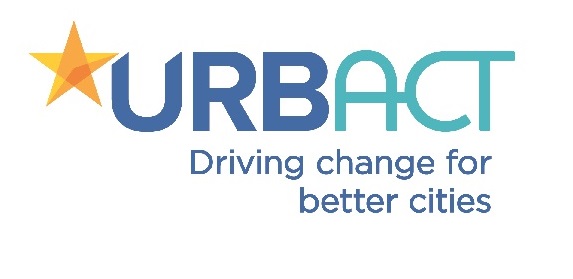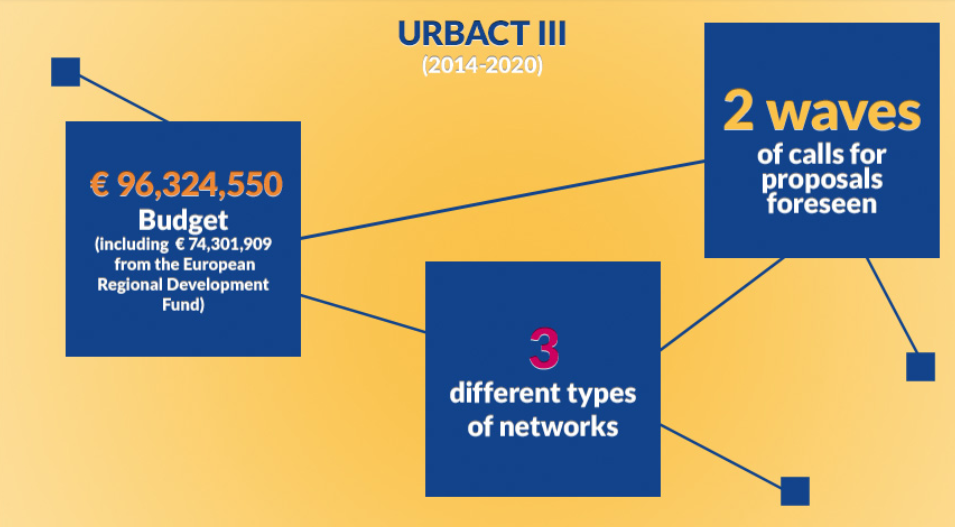INTERREG VC – Urbact
For about 15 years, the URBACT programme has been the European Territorial Cooperation programme aiming to foster sustainable integrated urban development in cities across Europe. It is an instrument of the Cohesion Policy, co-financed by the European Regional Development Fund, the 28 Member States, Norway & Switzerland.
URBACT’s mission is to enable cities to work together and develop integrated solutions to common urban challenges, by networking, learning from one another’s experiences, drawing lessons and identifying good practices to improve urban policies.
Following the success of the URBACT I and II programmes, URBACT III (2014-2020) has been developed to continue to promote sustainable integrated urban development and contribute to the delivery of the Europe 2020 strategy.
The URBACT III programme is organised around four main objectives:
- Capacity for Policy Delivery:to improve the capacity of cities to manage sustainable urban policies and practices in an integrated and participative way.
- Policy Design:to improve the design of sustainable urban policies and practices in cities.
- Policy Implementation:to improve the implementation of integrated and sustainable urban strategies and actions in cities.
- Building and Sharing Knowledge:to ensure that practitioners and decision-makers at all levels have access to knowledge and share know-how on all aspects of sustainable urban development in order to improve urban development policies.
To reach these objectives, URBACT III develops 3 types of interventions:
- transnational exchanges,
- capacity-building,
- capitalisation & dissemination.
Each of these interventions are built upon the strengths developed in URBACT II.
URBACT uses resources and know-how to strengthen the capacity of cities to deliver integrated urban strategy and actions on the thematic according to their challenges. The main target participants include practitioners, city managers, elected representatives and stakeholders from other public agencies, the private sector and civil society.
Transnational exchange and learning networks are one of the core strands of activities of the URBACT programme. They aim to support European cities with the design and implementation of sustainable integrated urban policies. Depending on their local situation and needs, cities may join URBACT by taking part in 3 different types of networks:
- Action-planning Networks: supporting cities in addressing a policy challenge by producing an integrated action-plan
- Implementation Networks: supporting cities with the delivery of an existing integrated urban strategy/ action-plan
- Transfer Networks: supporting cities in adapting and re-using a good practice to enhance their urban policies
URBACT networks are approved through competitive calls for proposals. For 2014-2020, different calls for proposals for the 3 types of networks will be launched.
More info:
- Programa Operacional URBACT III (PDF, 2MB)
- Manual do Programa (PDF, 2MB) (last update: December 2018).
- Resumo do Cidadão URBACT III (PDF, 1MB) (que define as várias atividades URBACT em 2016).
- Lista de beneficiários do URBACT III (PDF, 200KB) (última atualização em janeiro de 2019).


